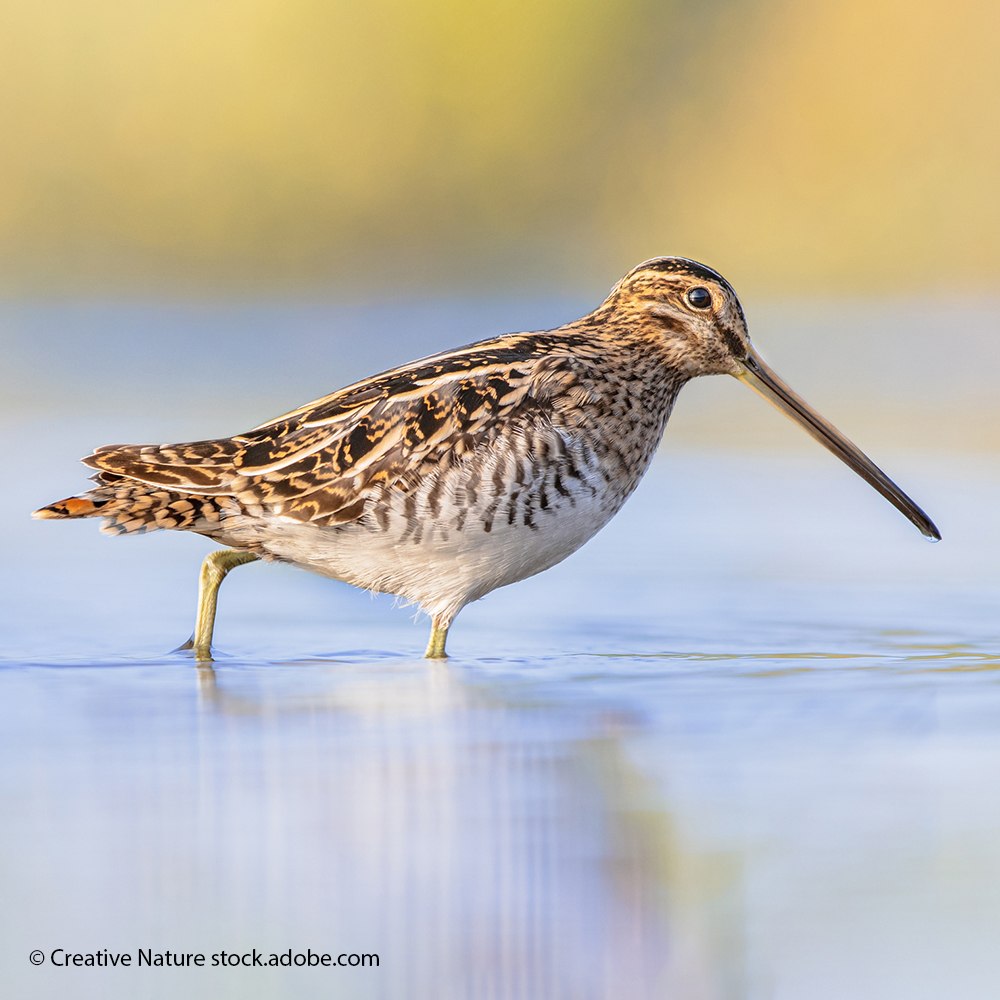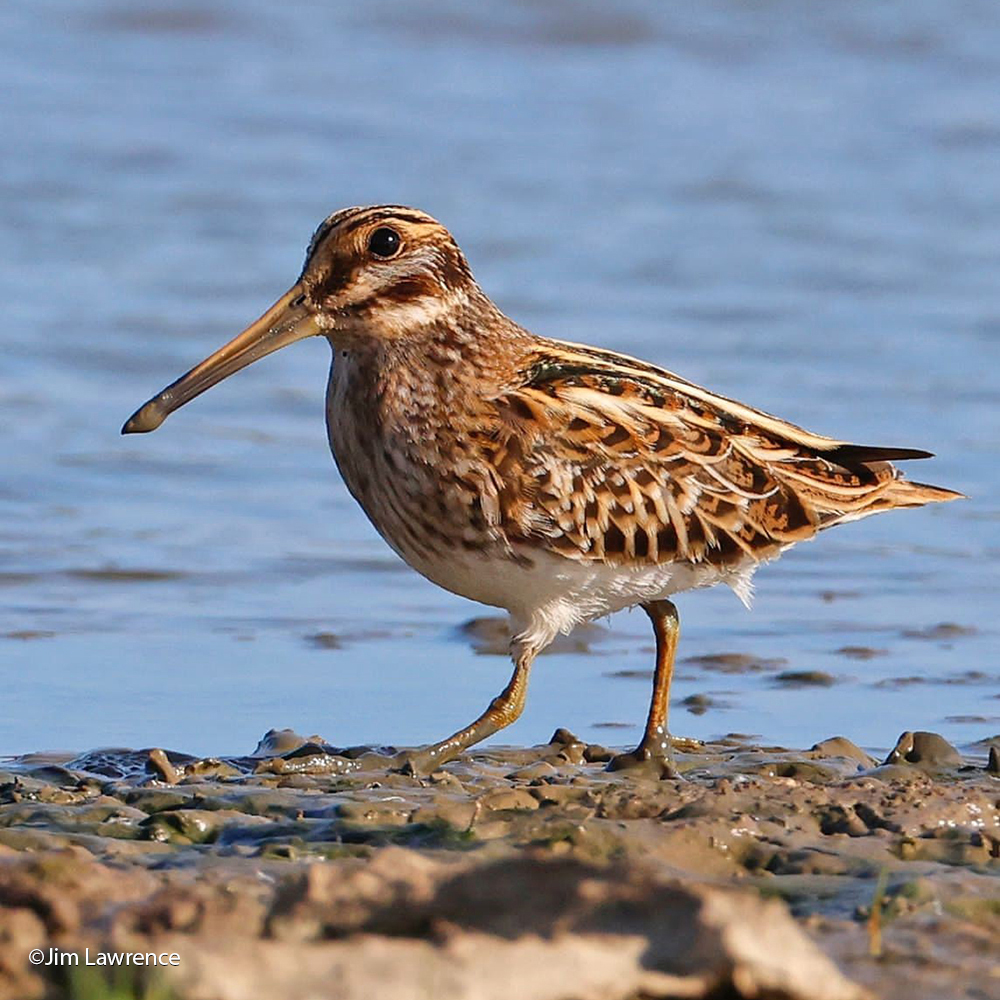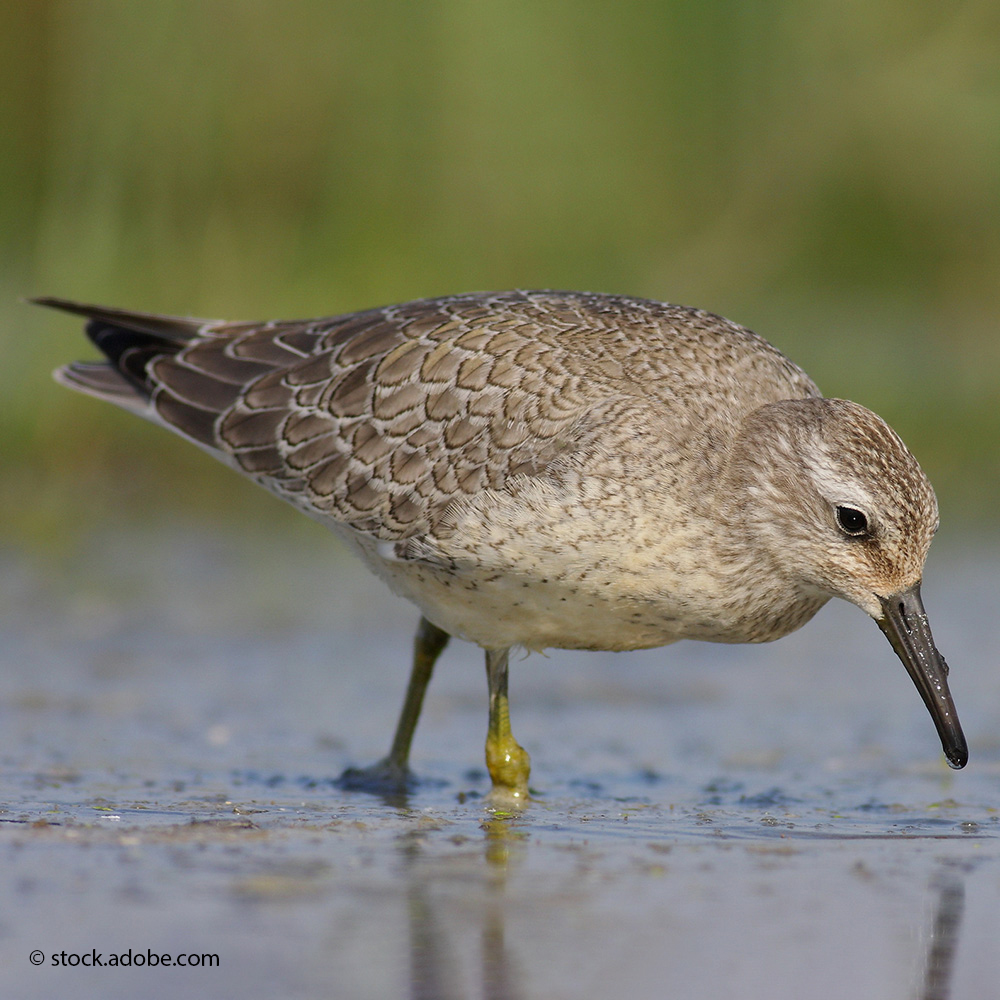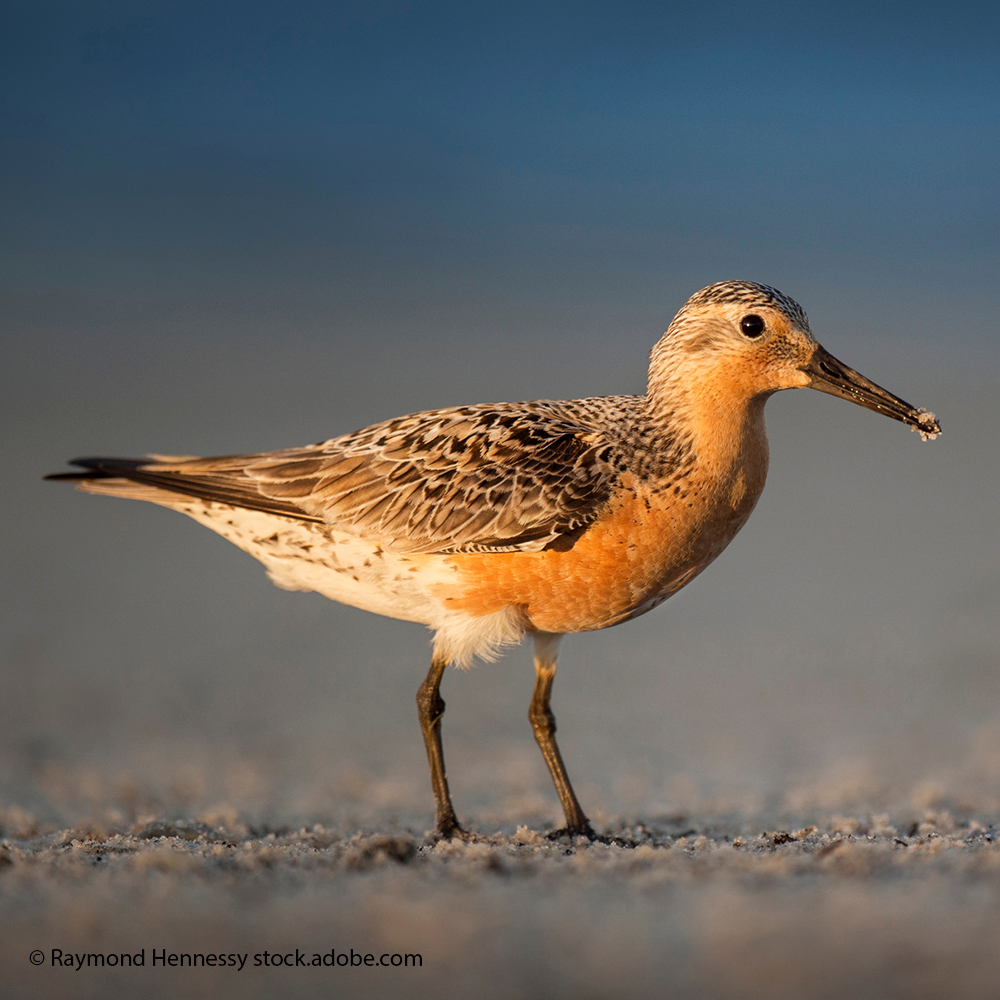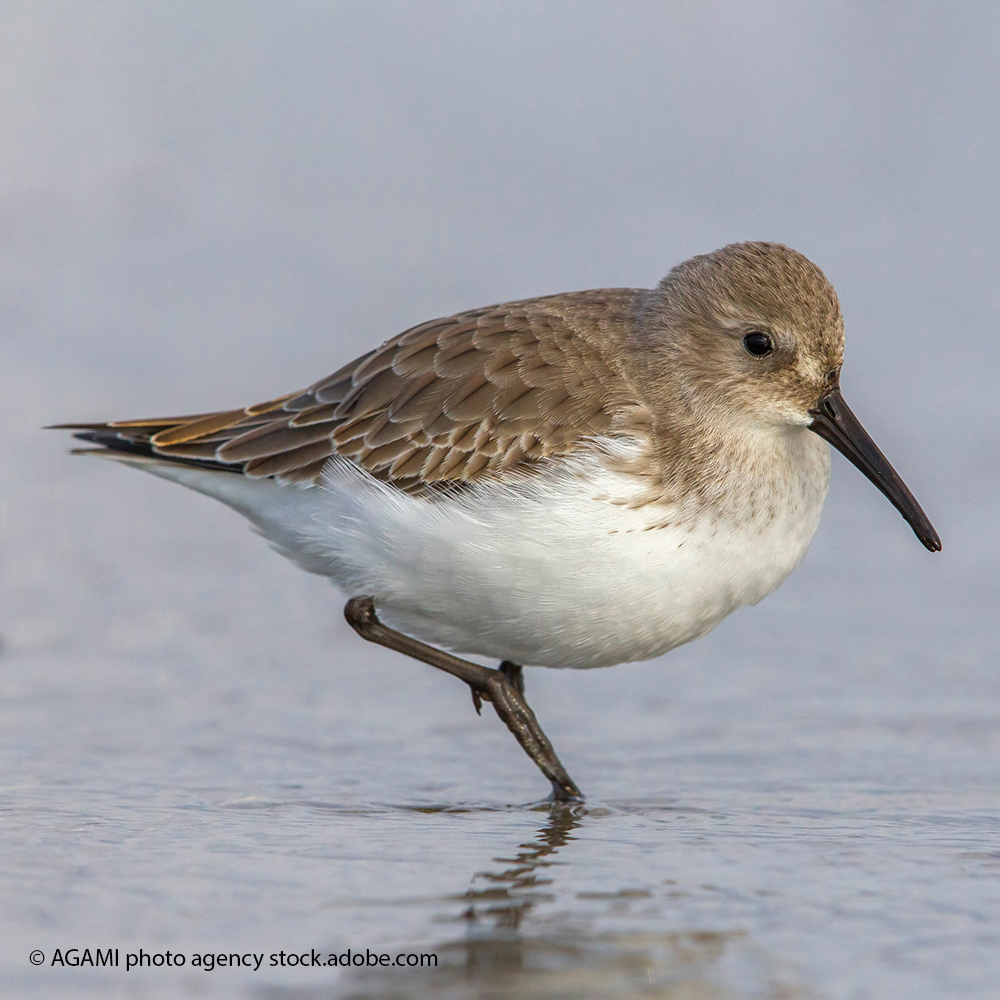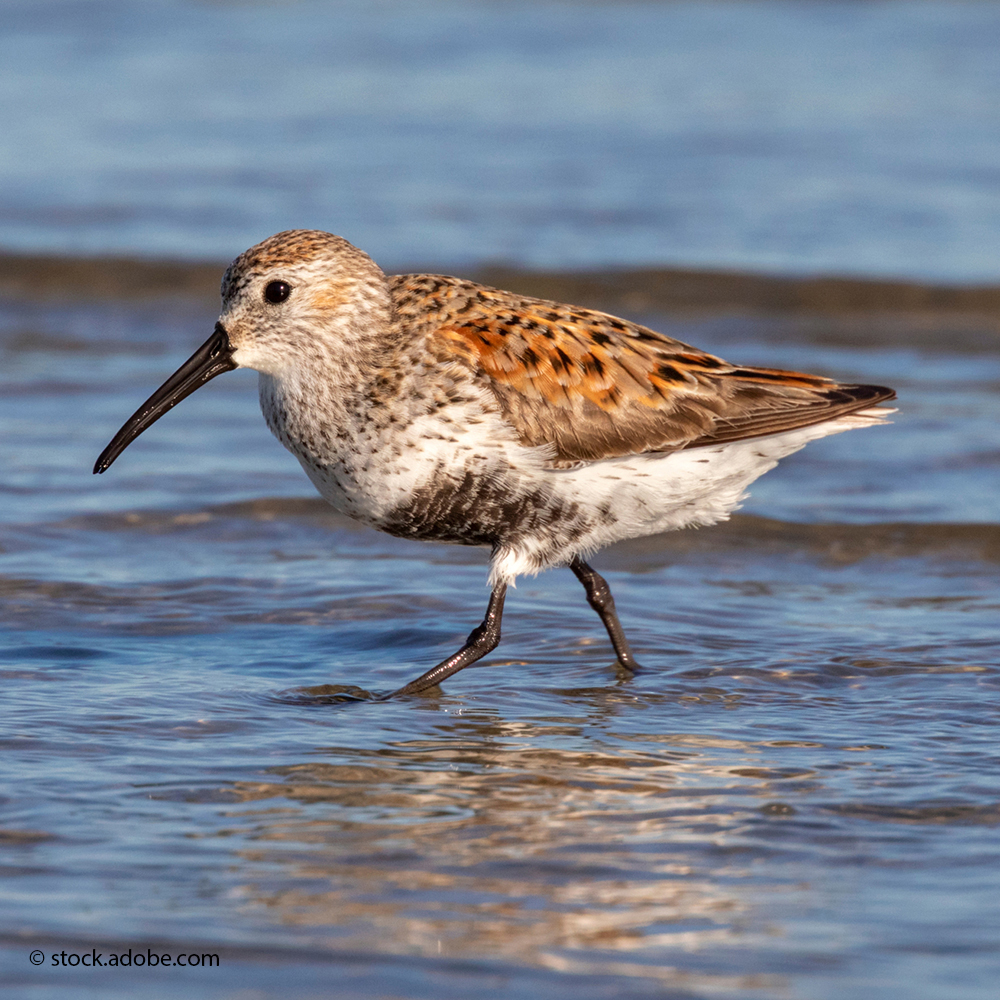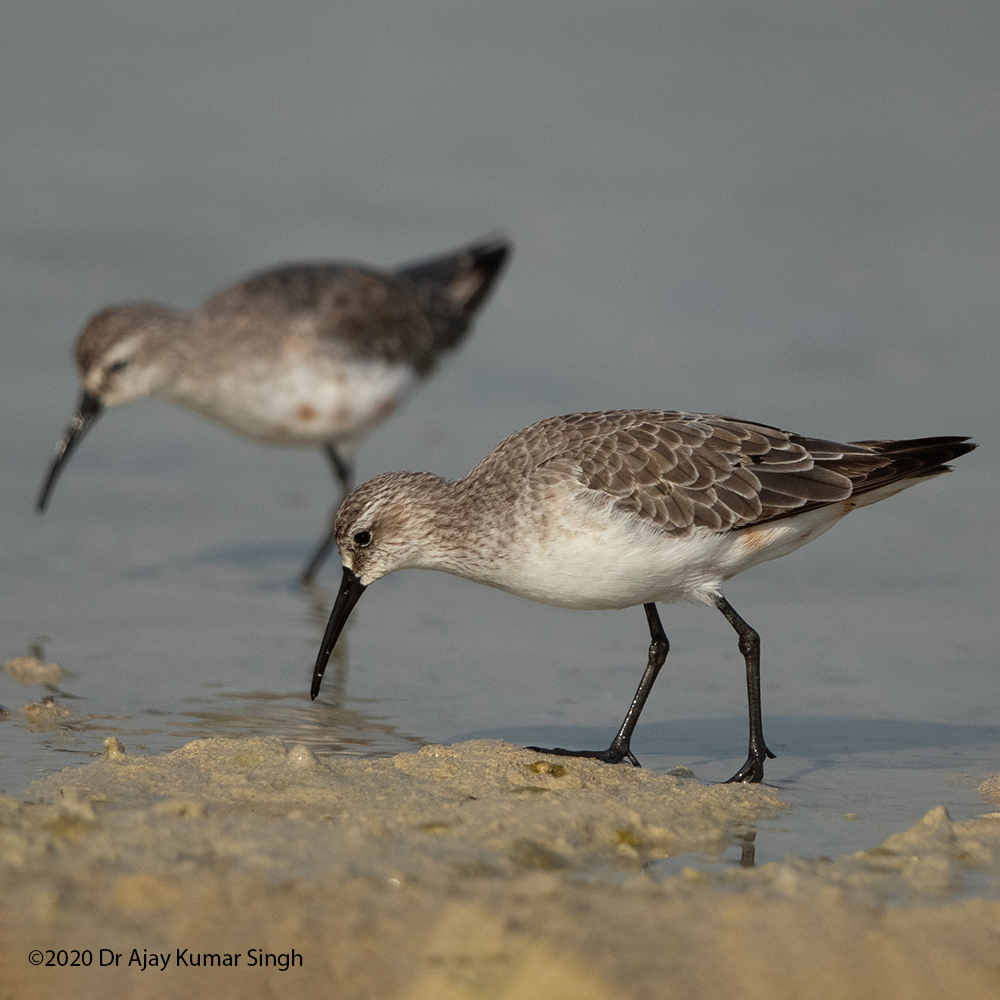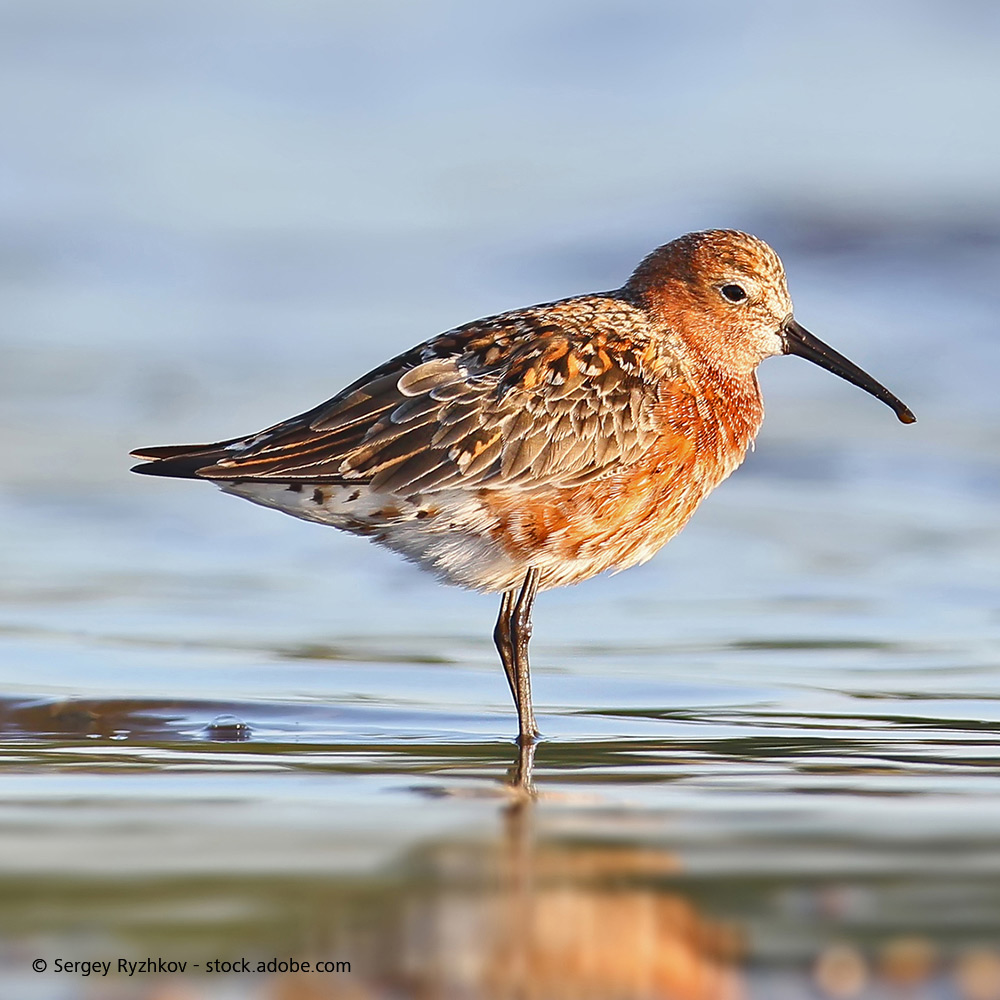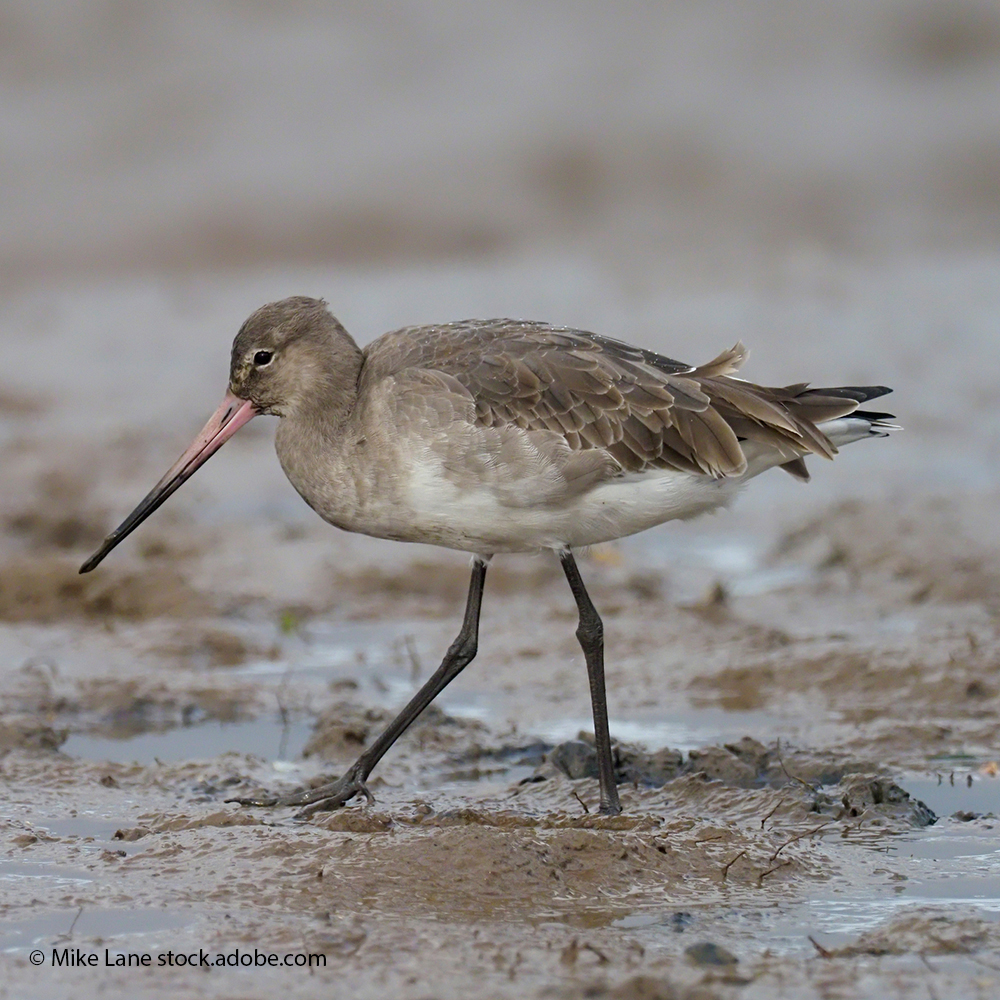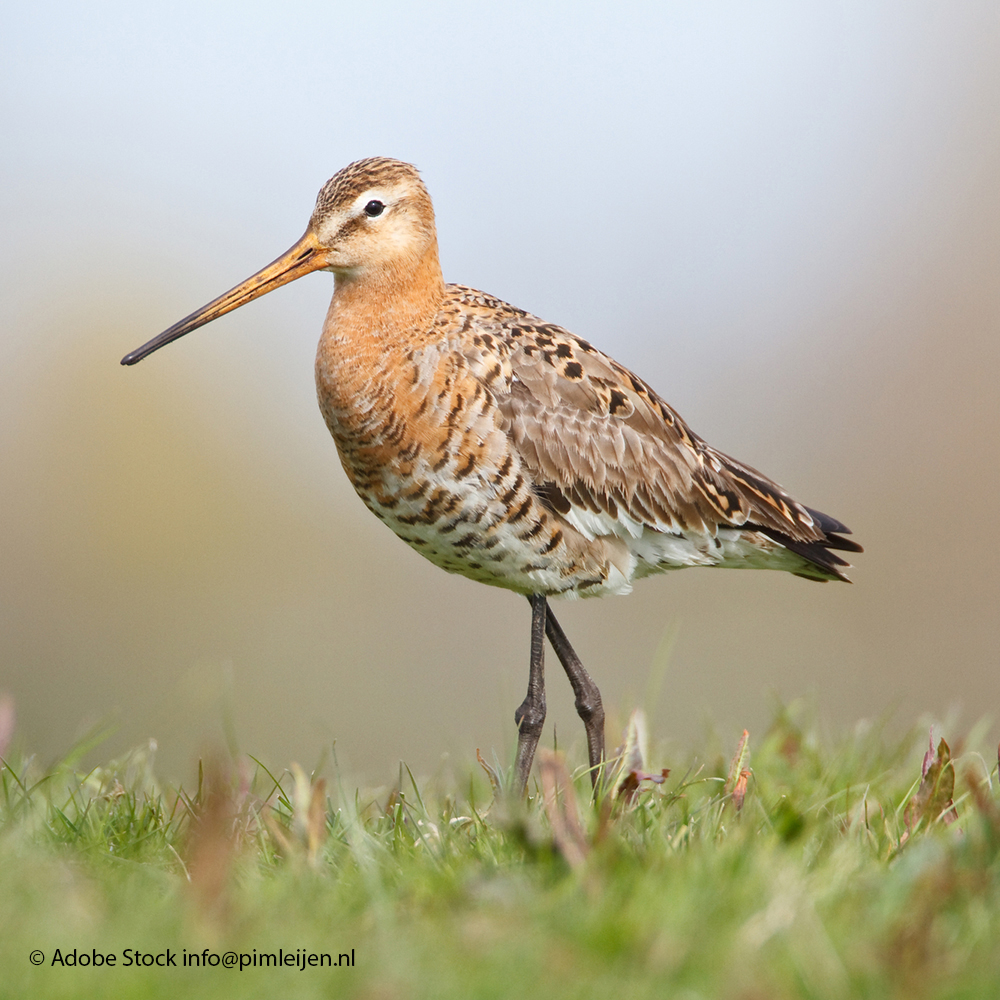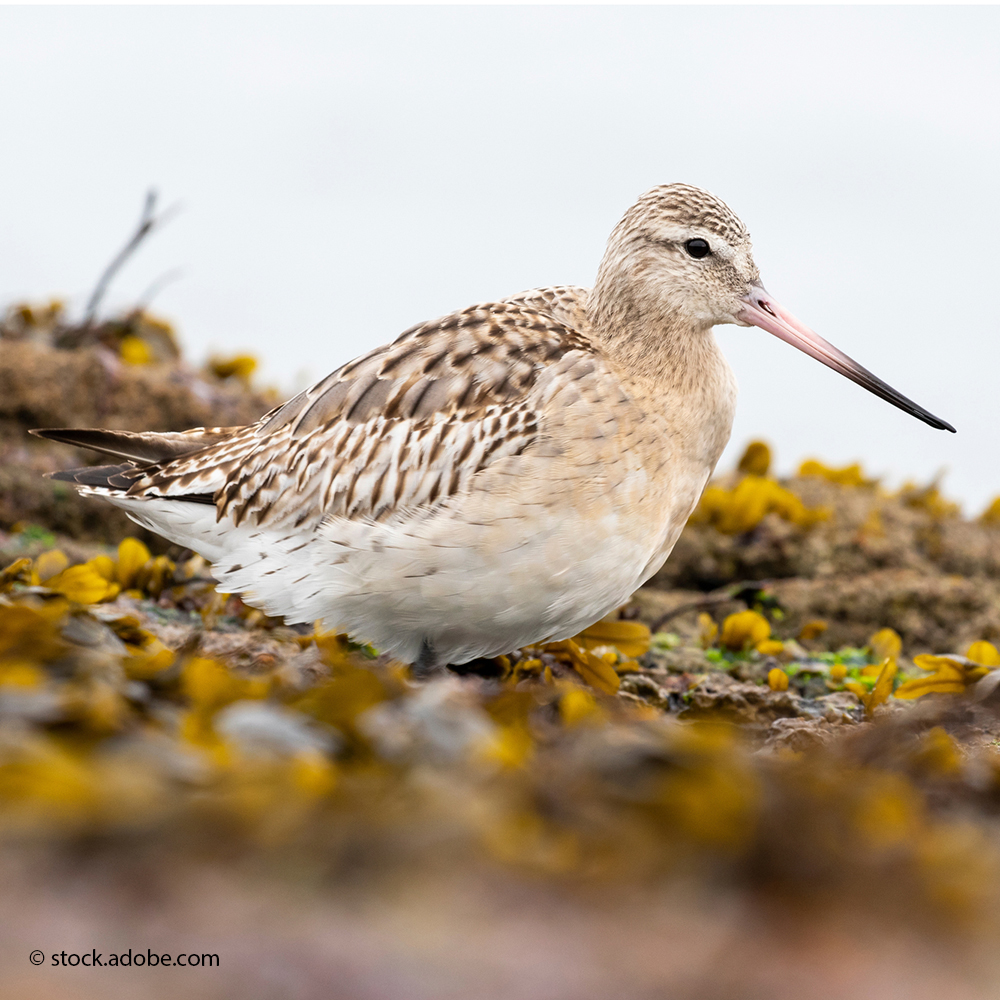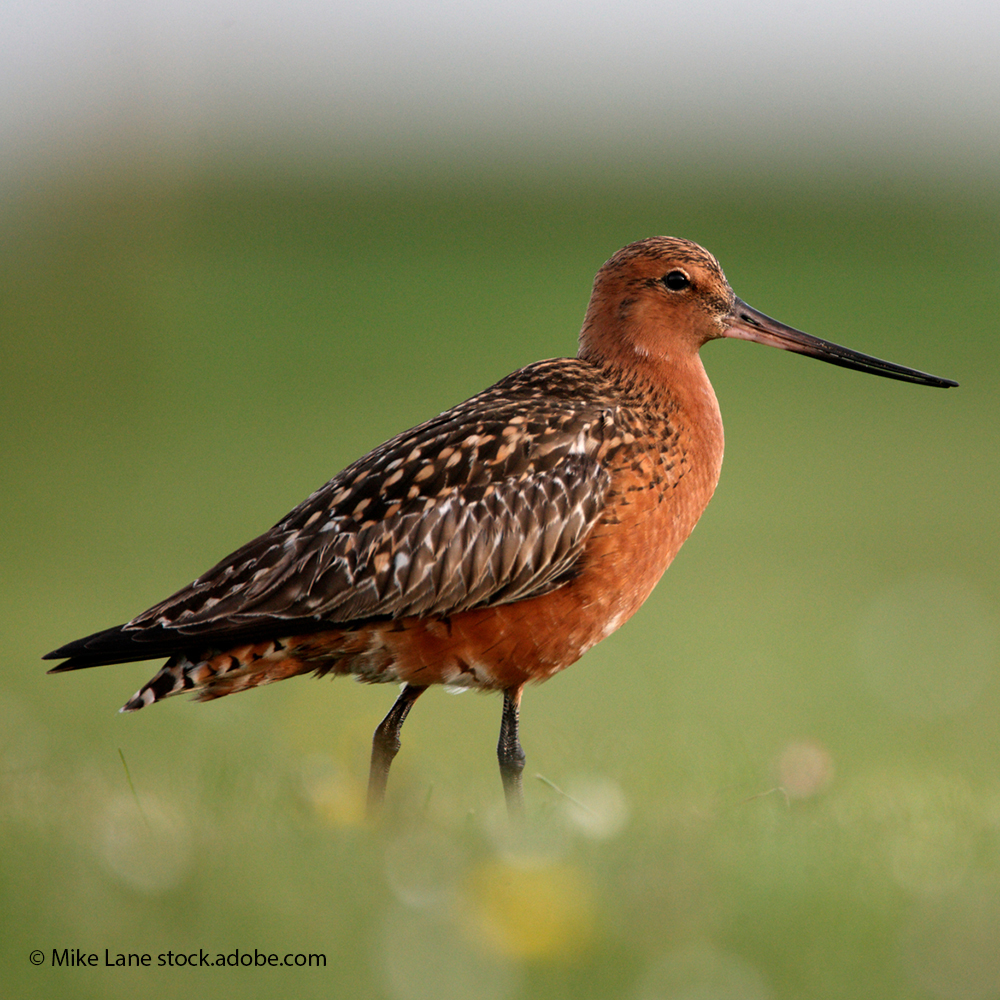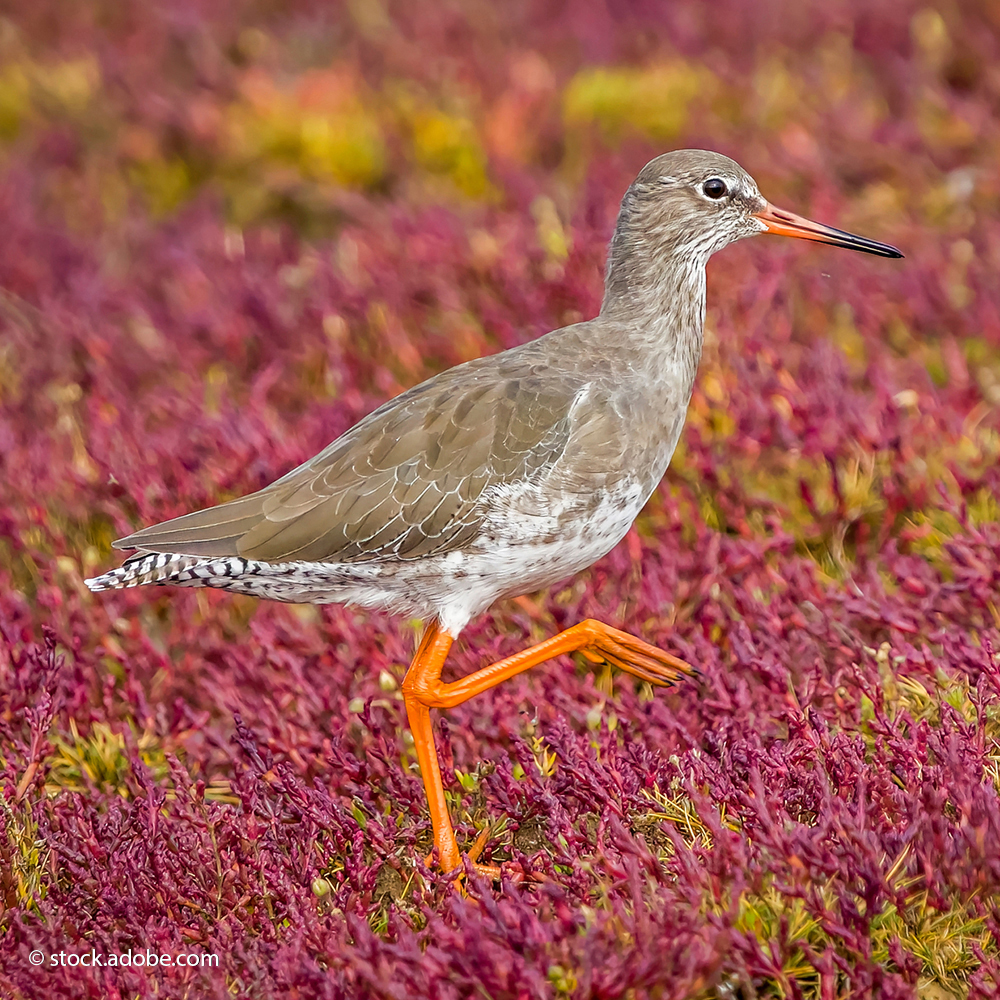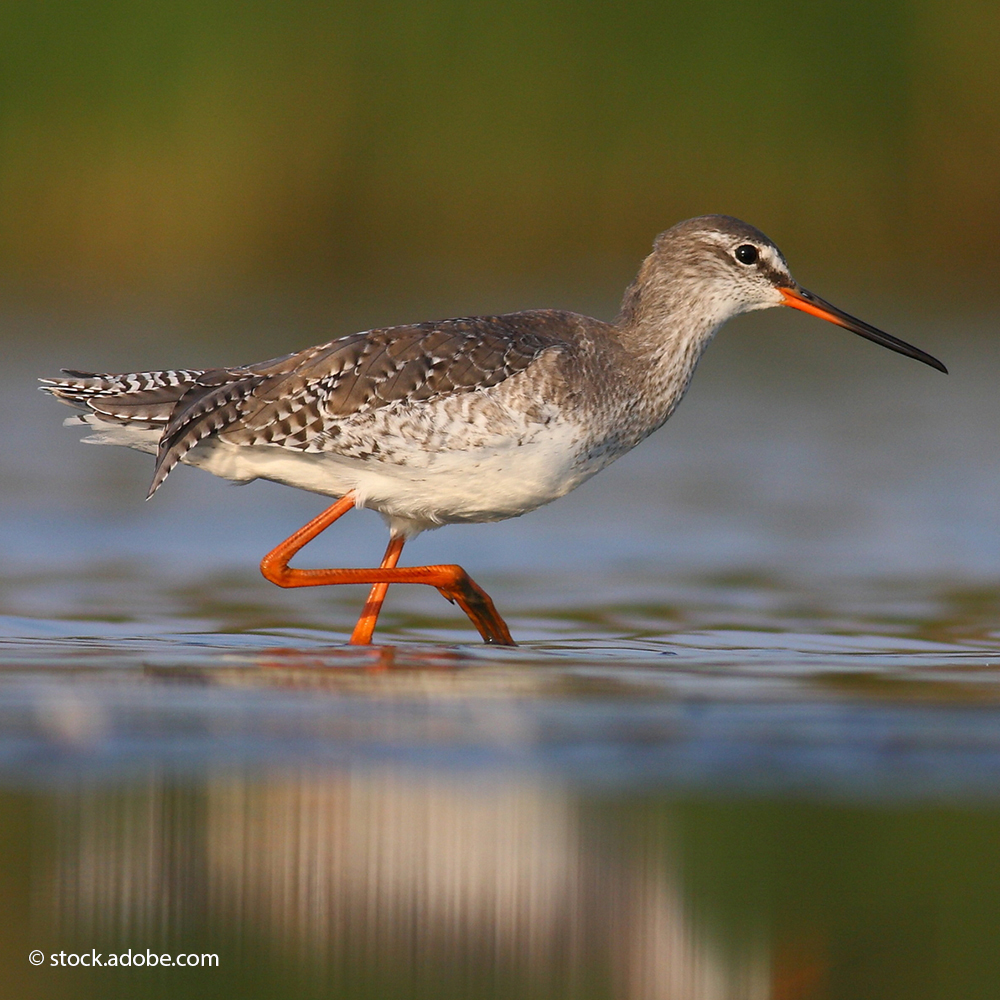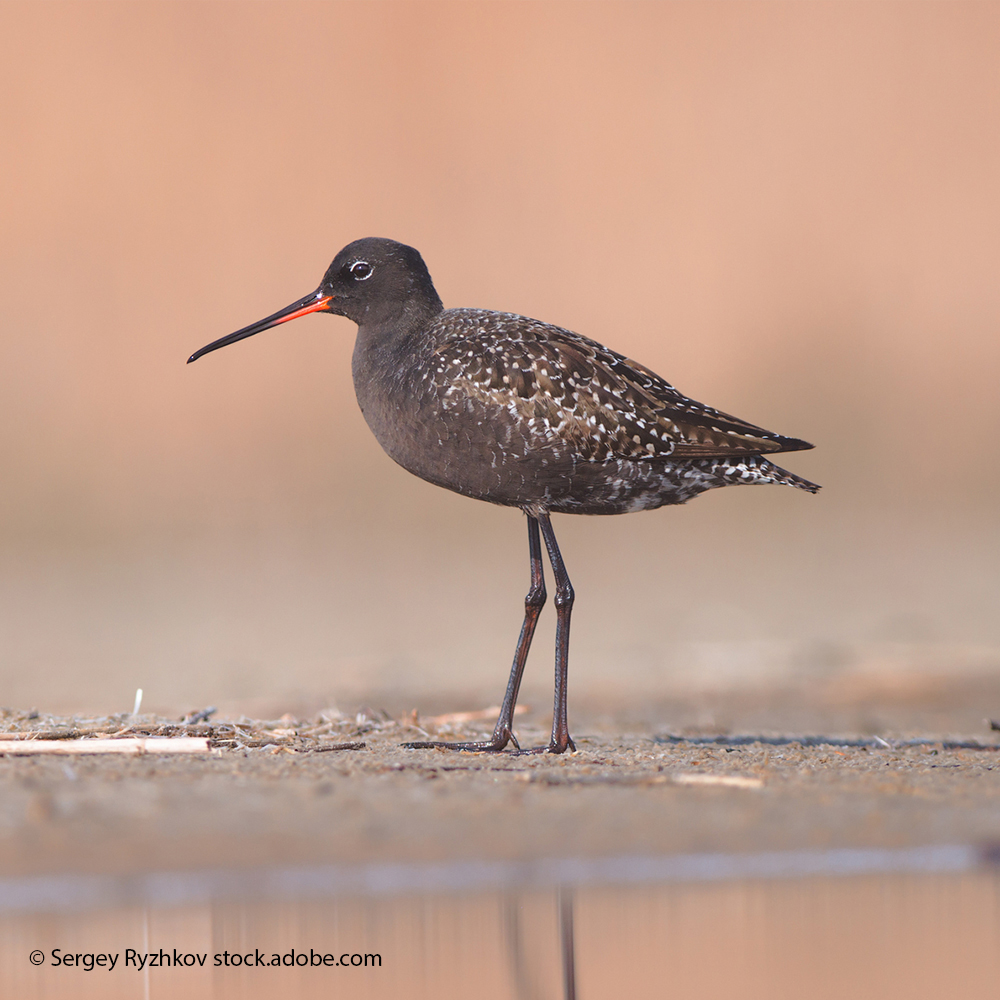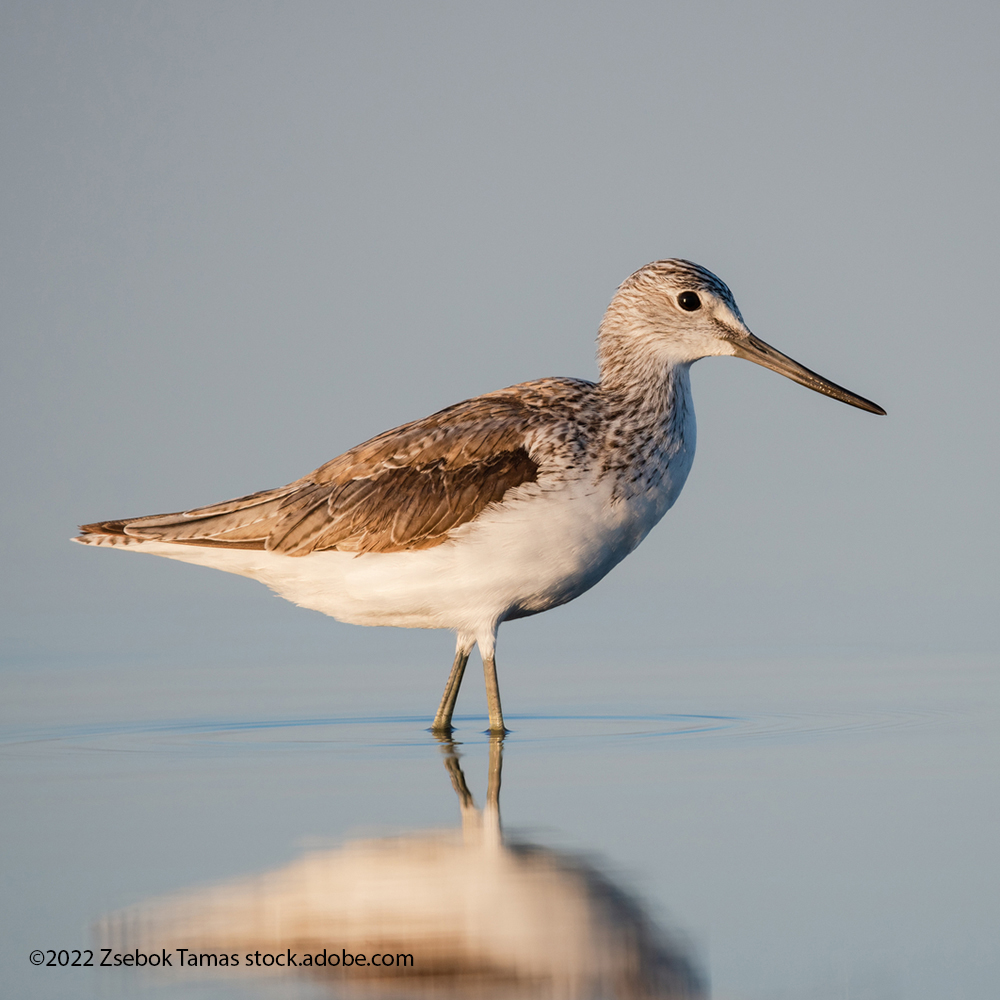They have an elegant appearance and impress with their long beak, with which they prefer to search for food on the shore.
Waders belong to the group of shorebirds and include a variety of species and genera. In this article, we would like to give you an overview on a few of them who seem to look very similar at a first glance.
- Common Snipe (Gallinago gallinago) vs Jack Snipe (Lymnocryptes minimus)
- Red Knot (Calidris canutus) vs Dunlin (Calidris alpina) vs Curlew Sandpiper (Calidris ferruginea)
- Black-tailed Godwit (Limosa limosa) vs Bar-tailed Godwit (Limosa lapponica)
- Common Redshank (Tringa tetanus) vs Spotted Redshank (Tringa erythropus) vs Common Greenshank (Tringa nebularia)
More to follow, so stay tuned for further information!
Common Snipe vs Jack Snipe
Common snipe (Gallinago gallinago)
- Medium-sized
- Long bill
- Pale crown-stripe
- White & unbarred belly
Jack Snipe (Lymnocryptes minimus)
- Small-sized
- 2/3 size of Common Snipe
- Short bill
- Dark crown stripe
- Bold golden stripes along the back
- “Bobbing” technique used mainly when feeding
Red Knot vs Dunlin vs Curlew Sandpiper
Red Knot (Calidris canutus)
- Medium-sized
- Short bill
- Slightly larger than Dunlin
- In winter their plumage is grey overall with grey/green legs and white belly, in summer they moult into a “brick red” appearance across the belly & head, showing mottled pattern on wings.
Dunlin (Calidris alpina)
- Small-sized (comparable to Starling)
- Bill length varies depending on sub-species though subtle difference
- In winter plumage birds showing a clean grey back & wings, white belly with black legs, in summer they show a black belly, streaking from breast to head & depending on sub-species the back & wings vary from a dull brown red to bright rufous colouration extending onto the head.
Curlew Sandpiper (Calidris ferruginea)
- Medium-sized
- Slightly larger than Dunlin
- Legs are black though quite long
- Longer and thinner bill, looking down-curved (resembles a small Curlew hence name)
- Like Dunlin & Knot, Curlew Sandpipers in winter show a similar grey appearance in winter with a grey back & wings, white belly though the Curlew Sandpiper shows a faint supercilium (eye stripe), in summer the theme continues with brick red appearance and mottled wings & back. In juveniles they appear “peachy or buff” in colour with a very prominent supercilium.
Black-tailed Godwit vs Bar-tailed Godwit
Black-tailed Godwit (Limosa limosa)
Bar-tailed Godwit (Limosa lapponica)
Common Redshank vs Spotted Redshank vs Common Greenshank
Common Redshank (Tringa tetanus)
Spotted Redshank (Tringa erythropus)
Common Greenshank (Tringa nebularia)
